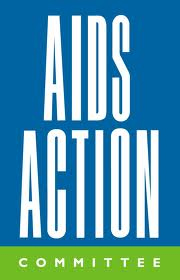 BOSTON, Mass. — AIDS Action Committee will join the Massachusetts Viral Hepatitis Coalition for a Legislative Briefing about viral hepatitis on Monday, May 13 from 10:30 to 11:30 a.m. in the Member’s Lounge on the third floor at the State House.
BOSTON, Mass. — AIDS Action Committee will join the Massachusetts Viral Hepatitis Coalition for a Legislative Briefing about viral hepatitis on Monday, May 13 from 10:30 to 11:30 a.m. in the Member’s Lounge on the third floor at the State House.
Speakers will include Joint Public Health Committee Co-Chairs Rep. Jeffrey Sánchez and Sen. John F. Keenan; Director of DPH Bureau of Infectious Disease Kevin Cranston; Camilla S. Graham, MD, MPH, Co-Director, Viral Hepatitis Center, BIDMC; Malinda A. Ellwood, JD, Health Law and Policy Fellow Harvard Law School, Center for Health Law and Policy Innovation; and Rebecca Haag, President & CEO of AIDS Action Committee. [pullquote]The CDC currently recommends that anyone born between 1945 and 1965 be tested for hepatitis.[/pullquote]
“People can live with hepatitis C for a decade or more before diagnosis, which greatly complicates their eventual treatment and increases the costs of care,” said Rebecca Haag, President & CEO of AIDS Action Committee of Massachusetts, a convening member of the Massachusetts Viral Hepatitis Coalition. “If we don’t slow the infection rate and improve treatment outcomes, the state’s costs for treating people with hepatitis C — which is often called the ‘silent epidemic’ because people can live with it for more than a decade without symptoms — will continue to increase. One of the first things we need to do is to raise awareness of what viral hepatitis is and the devastating impact it is having on the public’s health.”
The U.S. Centers for Disease Control, CDC, estimates that more than 2 million baby boomers have hepatitis C, accounting for more than 75% of Americans living with the disease. More than 15,000 Americans die of hepatitis C annually; yet most people with hepatitis C do not know that they have the disease because it is often asymptomatic. Many do not learn that they have the disease until they have been diagnosed with serious health conditions related to hepatitis, and without early diagnosis, people with hepatitis lose out on promising treatment options that were not available even just a few years ago.
The CDC estimates that by offering a one-time hepatitis C blood test to baby boomers, more than 800,000 additional people with hepatitis C will be identified and 120,000 lives could be saved. According to the CDC, if the people who are currently infected with hepatitis C do not receive care, 1.76 million will develop cirrhosis, approximately 400,000 will develop liver cancer, and approximately 1 million will die of related complications between the mid-2020s and mid-2030s. The CDC currently recommends that anyone born between 1945 and 1965 be tested for hepatitis.
Facts About Viral Hepatitis
• Viral hepatitis causes inflammation of the liver which can lead to cirrhosis and increased risk of liver cancer.
• There are an estimated 110,000 people living with viral hepatitis in Massachusetts today with between 7,000 to 10,000 new diagnoses annually.
• 14 percent of those living with HIV/AIDS are co-infected with hepatitis C.
• Viral hepatitis is spread in the same manner as HIV, but is much more highly infectious and easily transmitted from one person to another.
• Between 2002 and 2009, the rate of infection among teens and young adults age 15-24 increased 74%, largely driven by the shared use of injection drug equipment.
• In 2008, the number of US deaths attributed to hepatitis (15,768) surpassed, for the first time, the number of deaths due to HIV/AIDS (11,924).
About AIDS Action Committee of Massachusetts
Founded in 1983, AIDS Action Committee of Massachusetts, Inc.’s mission is to eliminate new HIV infections, maximize healthier outcomes of those infected and at risk, and attack the root causes of HIV/AIDS. AIDS Action works toward this by providing services for men, women, and children living with AIDS and HIV; educating the public and health professionals about how to prevent HIV transmission in accordance with harm reduction principles; and advocating for fair and effective AIDS policy at the city, state, and federal levels. AIDS Action also provides targeted outreach to those most vulnerable to HIV infection, and runs the only multilingual statewide hotlines for AIDS/STD (1-800-235-2331) and Hepatitis (1-888-443-4372). AIDS Action also offers HIV counseling and testing, needle exchange, mental health counseling; peer support; transportation and housing assistance; case management and client advocacy; legal services; and check in (through which volunteers connect with clients to keep them in care). Learn more at www.aac.org.
[From a News Release]







